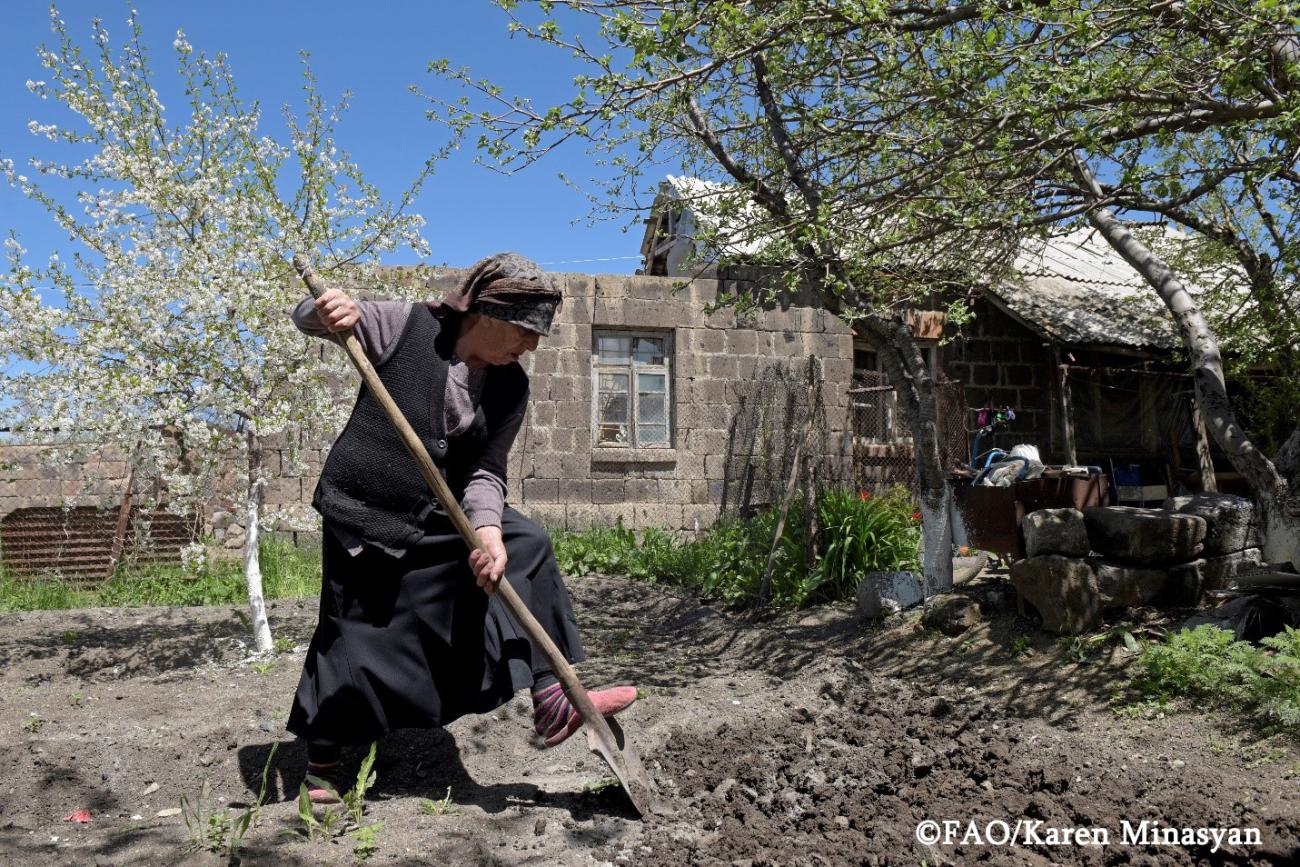Rural families face the COVID-19 pandemic with more confidence thanks to FAO

A rapid assessment have been conducted in two regions of Armenia to monitor the current situation.
Vulnerable rural families in Armenia, who received livestock and feed support from FAO previously, can better cope with the situation generated by the COVID-19 pandemic, and have a more balanced nutrition. This was found by the rapid assessment on the pandemic’s impact on the socially vulnerable population in Lori and Shirak marzes.
The two provinces are the poorest among the ten, with high percentage of malnutrition and stunting, this being the reason for the project to pilot a Cash Plus support here.
Families have been questioned by phone about their health status, the effect of the emergency situation on their employment and the agricultural works, food consumption and accessibility, as well as market situation, particularly access to markets and price changes.
The impact assessment showed that Cash Plus approach has strengthened the resilience of the beneficiary households and will certainly contribute to early recovery and mitigation of consequences caused by current situation of the disease outbreak.
“It is of course hard times for everyone, but I think we are fortunate that our family became the FAO pilot project beneficiary,” said Qyaram Khachatryan, a smallholder from Marmashen community. “We were so encouraged and decided to increase the number of hens, which was a wise decision, because now that I cannot accept casual job, our family fully relies on the product from poultry. We cope with the situation quite well and hope things will change soon.”
All households stated that they have started cultivating their kitchen gardens and/or arable lands. The issue indicated by all of them was related to seeds and fertilizers: two key factors were mentioned in this regard – scarcity or lack of financial means to buy seeds and fertilizers and the deficit of fertilizers and quality seeds.
As for the nutrition status, or rather for availability of food, they didn’t express any current problem with food availability – they consumed the food they had stored for the winter, such as home-canned vegetables, self-produced fruits and vegetables stored in their basements (potato, cabbage, beans, lentils). At the same time the respondents mentioned that a substantial price increase on food products was registered, at least in their settlements, and they were not able to afford buying the same quantity food and services as they used to before emergency.
Survey participants had serious concerns, that if situation lasted longer than a month, they might face serious problems.
As for the market accessibility, the mobility of people is currently minimized to the extent possible, plus the assessed households do not produce as much agricultural product that would be beneficial to sell in city markets. Normally, they exchange their production with some other commodity or sell it in the village, to neighbors.
The phone survey covered 28 randomly selected beneficiary households (21 percent of the total). It includes 170 people, of which 42.7 percent are children at 0-5 age group.
***
The FAO project “Developing Capacity for Strengthening Food Security and Nutrition in Selected Countries of the Caucasus and Central Asia” is funded by the Russian Federation. It aims at strengthening linkages between agriculture, nutrition and social protection.
The Cash Plus pilot implemented by the project targeted 133 vulnerable rural households in Armenia with two or more children, of which at least one under the age of five. It aimed to improve nutrition outcomes of those households and facilitate planning and investment. To meet this objective, the “productive packages” in Armenia were tailored to the unique livelihood profile as well as to local needs of the two regions selected for the pilot.
It is worth mentioning, that the Cash Plus approach served as a basis for the Government of Armenia to launch a similar social protection programme in November 2019 targeting 1000 rural families.




